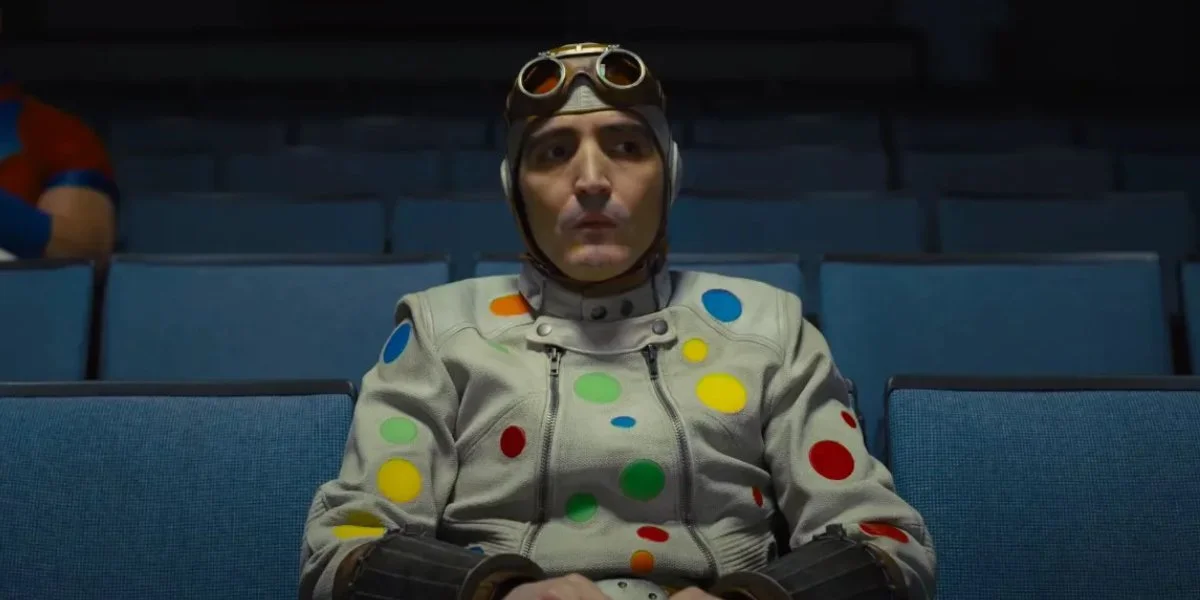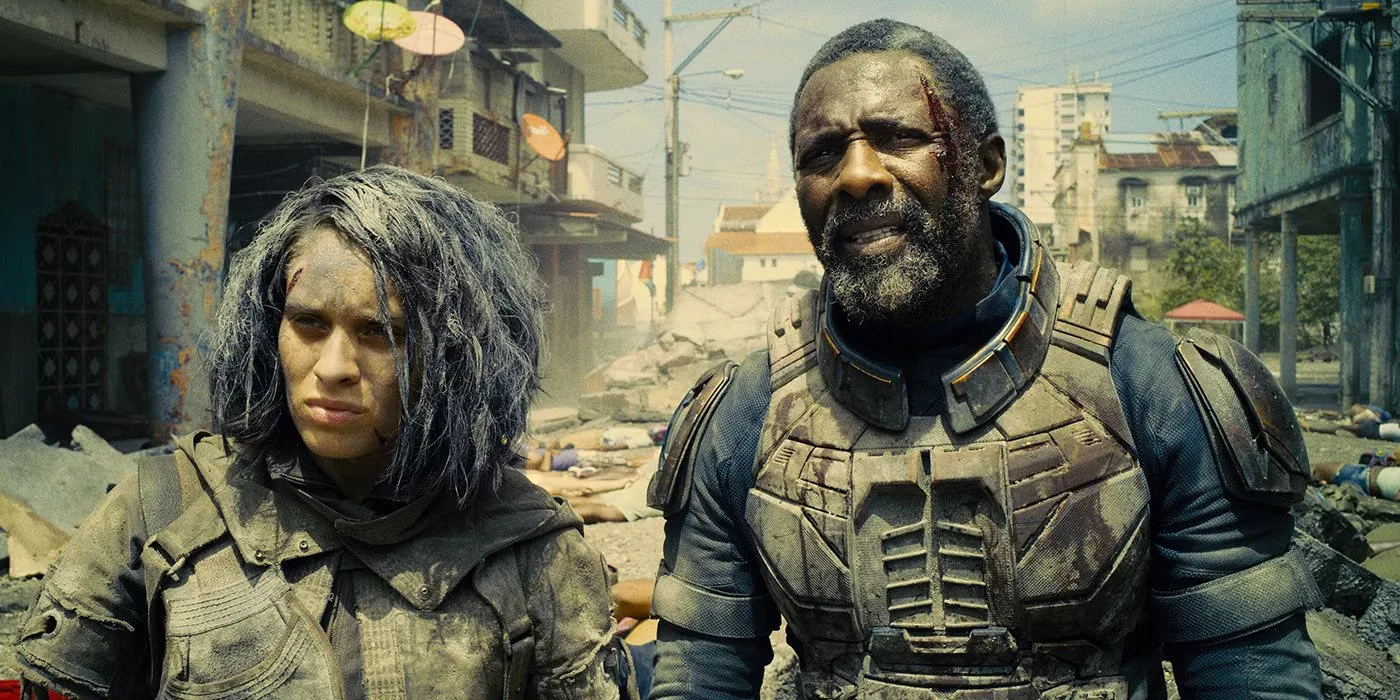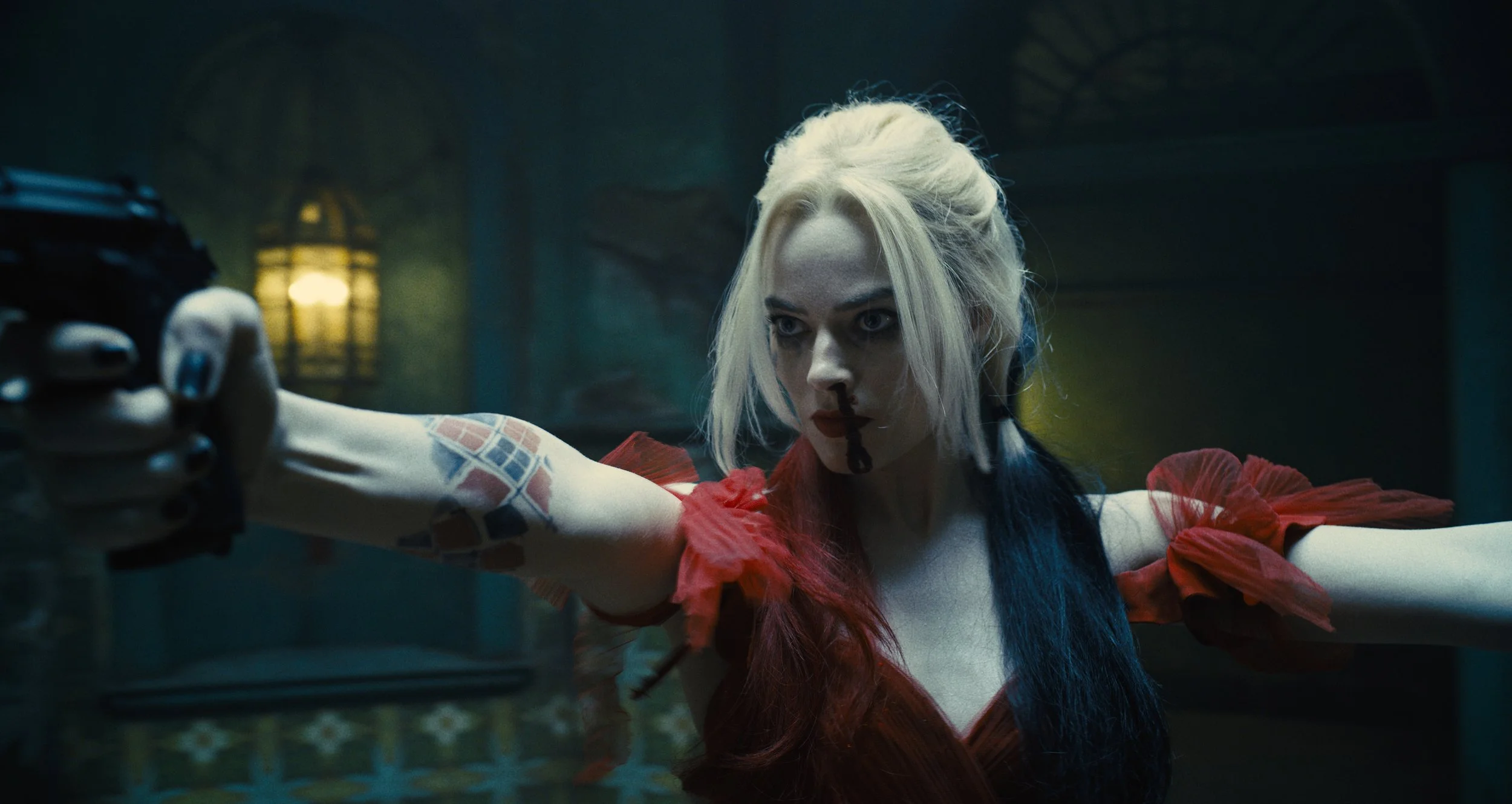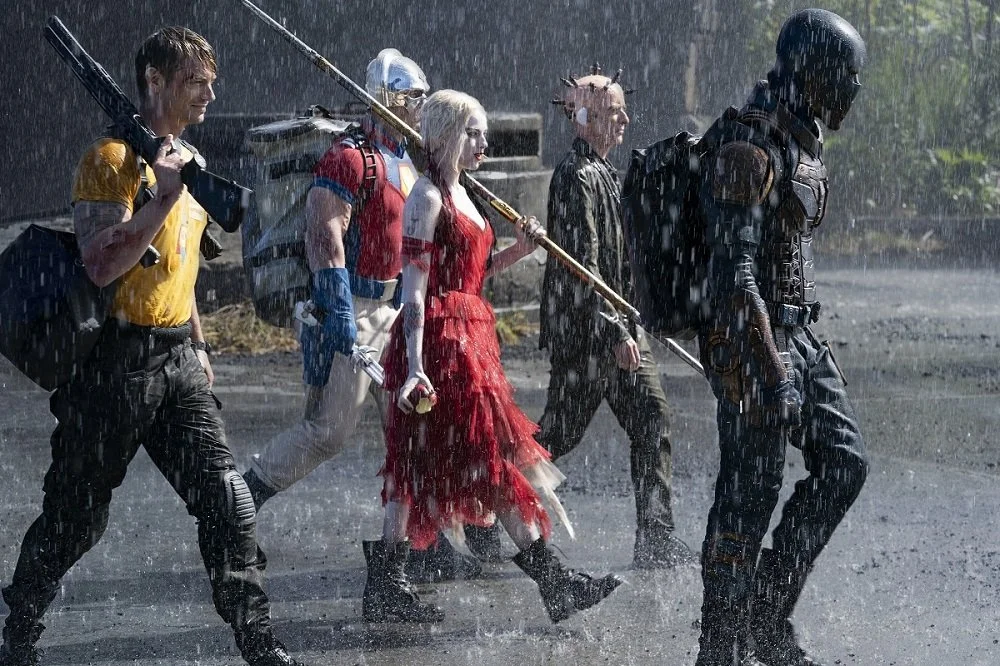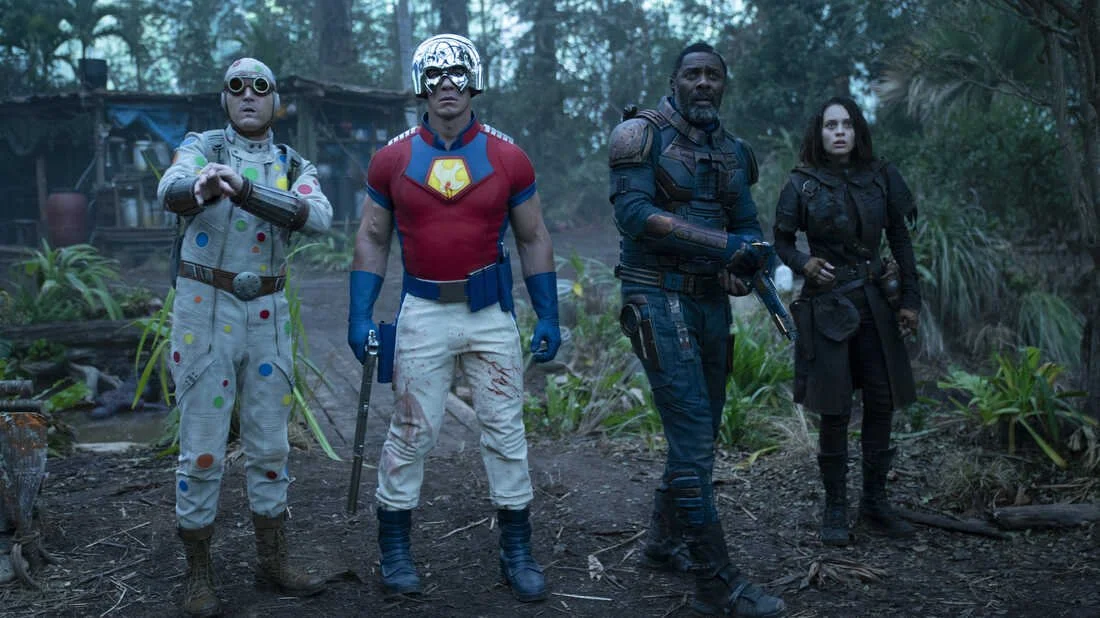The Suicide Squad: A DCEU Retrospective (Part 11)
Rating – 8.5/10
**SPOILERS**
In regards to my made up “phases” of the DC Extended Universe, the first was defined by two things: Zack Snyder’s cynical, subversive vision and a lot of studio interference. Enough studio interference to screw up most of the films released during the era. However, what I feel isn’t acknowledged enough about the franchise history, is that Warner Bros did show some ability to learn from mistakes, hence why phase 2 of the DCEU covers a lot of projects where filmmakers were allowed to do whatever they wanted, embracing whatever tones, colors, and styles best suited their films. Here we find the pinnacle of that, and it might have resulted in the best film of the entire franchise.
Welcome back to the DCEU Retrospective series, where in this entry, we meet a major player in the future of the franchise: writer and director James Gunn. In 2018, Gunn was best known for his work on the Marvel Cinematic Universe’s Guardians of the Galaxy series, but had been fired by Disney for some ancient tweets that had been dug up. While Gunn would eventually be rehired by Disney, in the meantime Warner Bros saw an opportunity and began talks with Gunn. Initially, the studio wanted him to direct a new Superman film, which Gunn was very hesitant to take on. As a sign of how interested they were in Gunn’s talents, the studio offered him a chance to make a film about any DC property he wanted. And so, the Suicide Squad got their second cinematic chance.
As discussed previously in this series, 2016’s Suicide Squad might be one of the least well received films in the DCEU. Fortunately (though not because of this fact), James Gunn’s The Suicide Squad is not a sequel to the original, serving as more of a relaunch with a mostly new cast while not explicitly contradicting the events of the 2016 film. Therefore, certain characters (including Margot Robbie’s Harley Quinn) return, but aside from that, The Suicide Squad, which released in 2021, is a totally new creation in the DCEU. It of course follows the same concept, as a group of incarcerated supervillains are brought together by the government to carry out an incredibly dangerous black ops mission. This time though, the concept has been imbued with color, Gunn’s signature brand of humor, the R rated gore expected of such a concept, and stronger characters, with well-acted and well-written character arcs and a much more natural bond between them.
Gunn’s humor is one of the biggest standouts in the film. The Suicide Squad is hilarious, largely because Gunn embraces the sheer absurdity of the source material. This is a film willing to be ridiculous enough to include a fundamentally goofy character like Polka-Dot Man, depicted here as a sad socially awkward guy with mommy issues and an alien polka dot disease. This is a film with Sylvester Stallone voicing a big dumb shark person hybrid. This is a film whose final villain is a giant pink alien starfish, and Gunn is the type of filmmaker with the ability to just make bizarre things like this work.
What I think makes Gunn’s humor successful is that Gunn has a mastery of the straight man. The comedy term, not the sexual preference. Absurd and silly humor doesn’t really work without a comparatively normal person reacting to it and playing off of it, highlighting just how silly the whole thing is. Basic comedy concept. But Gunn knows how to implement this concept exceedingly well. This is of course aided by his actors, namely Idris Elba as Bloodsport (who definitely isn’t just a stand-in for Will Smith, who was busy doing other things), who brings the constant energy of not wanting to deal with the shenanigans around him and accepting the ludicrousness instead of questioning it (Elba also makes for a genuinely more engaging lead character than Smith, as a reluctant leader resigning himself to the part of a bad person). Joel Kinnaman, returning as squad handler Rick Flag, also makes for a great straight man, while finally being entertaining, having a character arc, and being at the center of the most emotionally affecting part of the film.
James Gunn never overdoes it with the humor, however, as he makes sure to give each character genuinely emotional beats and moments to shine. When making Guardians of the Galaxy, Gunn showed he could write for ensembles exceedingly well, and he continues to solidify that notion here. He knows how to give each character their time in the spotlight without pulling too much attention, how to make them memorable without diluting the larger arcs and story beats. Gunn just knows how to make smaller roles stand out as much as the larger ones, without pulling too much focus. He also gives each character a distinct role in the group dynamic, allowing them all to stand out further. It should also be mentioned that each role is played wonderfully. The entire cast is on top form. If I had to pick a favorite, however, somewhat surprisingly I’d pick Daniela Melchior as Ratcatcher, the heart of the story, and a genuinely good hearted character with a fleshed out back story, genuinely sweet relationships with Bloodsport and Stallone’s King Shark, and an adorable pet rat named Sebastian (he has a little red vest and he gives out pretty leaves as gifts).
As always when she appears, I should take a moment to acknowledge Margot Robbie as Harley Quinn. Obviously she’s the most popular character, enough so to have her own subplot on her own. Look, I think I can admit I’m just not crazy about the character and the vibe she brings. The performance isn’t overbearing this time though, and she does have significantly less screen time than in previous appearances, and more personalities to bounce off of. I feel as though it’s the best the character has been, and any issues I have don’t ruin the film, and I’m sure her fans will love it. She’s just not for me.
The last important James Gunn ability brought to the table: the visual style. Obviously The Suicide Squad embraces its comic roots, with comic accurate costumes (no matter how silly looking conceptually) and bright colors. But somehow, Gunn can combine this with a gritty and authentic feel to the film. Practicality plays a huge role in this, as the crew favors as many practical sets and effects as possible. There’s very little distracting CGI in the film, and the rest is able to feel tangible. The violence and explosions feel dangerous, the stakes feel higher, the extensive gore (this movie earns that R rating) is sickeningly authentic. At times, Gunn makes this movie believably look like it could really be happening, which is impressive considering the kitschy nature of the characters.
Overall, the reason this movie succeeds as well as it does is because of Gunn’s ability to make you care about these weird characters and successfully round them out, while balancing humor, violence, and pathos perfectly. Honestly, I can’t really find a single strong criticism of this movie. It makes me very happy that this really interesting concept got another chance after the last attempt fell flat, and was ultimately done justice in the end. As much as I love this though, I do still wish we could see David Ayer’s grounded, more serious vision for the team pulled off someday (without studio interference). That however is not a knock against this film. Just something I would’ve liked.
In my humble opinion, The Suicide Squad is the best film of the DC Extended Universe thus far, and it was also widely well received upon release. So it is shocking to me that this is the lowest grossing film and the biggest financial disappointment of the DCEU. This is of course due in part to the film being released during the pandemic, and its simultaneous release on HBO Max. The R rating of course limited audiences, and audience confusion regarding the film’s relationship to the widely disliked 2016 Suicide Squad. In spite of the critical success, the third box office disappointment in a row for the franchise would mark the moment when seeds of doubt would be sown for the DCEU’s future. However, James Gunn’s efforts would not go unnoticed.
Obviously, James Gunn would eventually be hired to helm the DC Universe, the eventual replacement for the DCEU. While I won’t explore the total downfall of the DCEU right now, I think it speaks to the quality of this film that Gunn was chosen for such a major role going forward. It feels safe to say that the new attempt at a DC based franchise is in good hands. Of course, we still have a few films to cover, and at this point, the DCEU was about to undergo some pretty big changes. The second phase of the DCEU officially ends here.
The third is where things really start going downhill.



